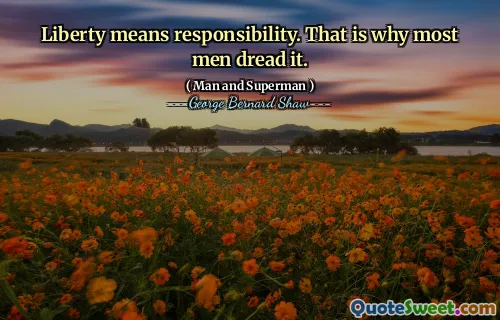
If liberty means anything at all, it means the right to tell people what they do not want to hear.
This quote by George Orwell underscores the fundamental principle that true freedom involves the courage to speak uncomfortable truths. In societies where liberty is valued, individuals should have the freedom to express their opinions even if those opinions challenge popular beliefs or authority figures. The essence of free expression is not just sharing agreeable ideas but also engaging in honest, sometimes dissenting, communication that can provoke critical thinking and societal progress. Orwell emphasizes that without the tolerance for dissent and unpopular speech, liberty risks becoming hollow or superficial. It is important to recognize that such freedoms come with responsibilities and sometimes discomfort; speaking difficult truths can invite criticism or backlash, but the presence of such speech is a safeguard for accountability and openness. Suppressing unpopular ideas might offer short-term peace or conformity, but in the long run, it undermines the very foundation of democratic and free societies. Orwell’s insight reminds us that safeguarding free speech, especially for views we dislike or find challenging, is essential for the growth of individual and collective understanding. Allowing diverse perspectives, even those we oppose, fosters a healthier, more vibrant democracy. Ultimately, freedom is tested by the willingness to confront hard truths, not just by the comfort of uniform consensus. Embracing the rights Orwell advocates for can lead to a more resilient and honest societal fabric, necessary for genuine progress and understanding.









